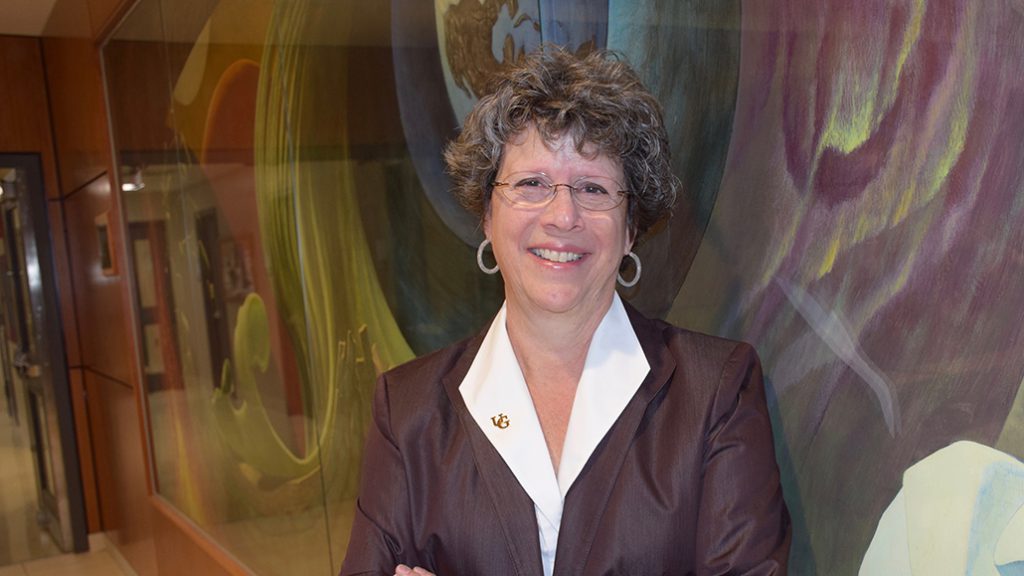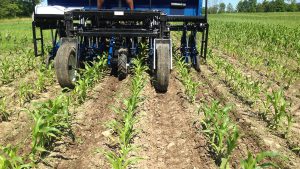Growing Canada’s food university

A FLURRY OF faculty hiring activity is underway at the University of Guelph, as the institution continues to stake its claim as “Canada’s food university.”
The university has cast its recruitment net far and wide. In fact, some of the positions available don’t even have a closing date. They will remain open “until a suitable candidate has been identified,” according to the university.
This story is evolving. To begin with, Guelph took a giant step in September when Professor Beverley Hale won the competition for associate vice-president (agri-food partnership). This position is arguably one of the most important in the university when it comes to agri-food administration. In her role, Hale will be in charge of overseeing the $76-million annual agreement for research and services between the University of Guelph and the Ontario Ministry of Agriculture, Food and Rural Affairs.
In Canada, the agreement is unique between an educational institution and a government’s agriculture ministry. It is widely credited with providing Guelph with the infrastructure and human resources needed to widely address the province’s most pressing agri-food challenges and its most promising opportunities.
Hale is currently associate dean (research and graduate studies) in the Ontario Agricultural College (OAC) and an environmental sciences professor. She studies plant and soil conservation and sustainable mining, and has dedicated her entire career to the university.
“Ontario agriculture covers a breadth of ecosystems and agronomic systems,” says Hale. “Gathering, managing, and integrating the large quantities of data from these ecosystems requires an infrastructure that includes researchers dedicated to regions and sectors. The partnership helps make that happen.”
AGRI-FOOD
In October, five of the six research chairs (positions dedicated primarily to research) at Guelph were related to agri-food. These are high-profile positions, including the Loblaw Companies Chair in Sustainable Food Production. This chair will lead the development of Canada’s first national roundtable on sustainable food production. Other duties include creating an industry advisory group, and increasing national and international awareness of sustainable food production issues through communication and outreach informed by research.

Another significant recruitment initiative involves the creation of three research chairs that will be associated with the Arrell Food Institute. These chairs were created from a $20 million gift to the University of Guelph from the Arrell Family Foundation, the biggest private gift the university has ever received.
The institute’s vision is to transform global food systems, and elevate Canada’s place within the global food economy. It says it will build on Guelph’s world-class strengths in all aspects of food, to become the world leader in food and agricultural innovation.
The three research chairs will be in food quality, in the business of food, and in food, policy, and society. Each chair will lead work “to promote more sustainable, equitable, efficient, safe, and nutritious food systems in Canada and abroad,” according to the university.
Research activity in the food institute is closely related to a program called Food From Thought, Agricultural Systems for a Healthy Planet, a $76.7 million, seven-year research endeavor at the University of Guelph. This program, according to the university, “is designed to exponentially increase Guelph’s ability to leverage big data for the benefit of food production and biodiversity at three scales of research and innovation at the global, landscape and microscale.”
The Canada First Research Excellence Fund is behind the program; Guelph’s funding is the biggest single research commitment it has received since becoming a university in 1964.
ENVIRONMENTAL SCIENCE
Applicants are also being sought for what’s called the Canada 150 Research Chair in Environmental Science and Agriculture. These 150 research chairs are being established across Canada in celebration of the sesquicentennial, to enhance Canada’s reputation as a global centre for science, research, and innovation excellence. They provide Canadian institutions with a one-time investment to attract top-tier, internationally based scholars and researchers. The university says this particular chair will build on the institution’s strengths and reputation in landscape-scale biogeochemical and hydrologic processes for managed ecosystems.
“The successful applicant will build a world-class nexus of researchers and infrastructure capable of contributing novel knowledge to resolving climate change, address complex questions using a state-of-the-art network of agronomy and livestock research stations, and contribute knowledge to the local and global resolution of the very complex problem that is global climate change, as well as the causal and mitigative potential of food production,” it says.
The School of Environmental Sciences is also hiring an assistant professor in soil biochemistry, working on research related to soil organic matter dynamics and nutrient cycling, particularly the carbon cycle. Candidates will be expected to conduct a field research program or collaborate with researchers to translate novel approaches in soil biochemical assessments to on-going field research programs.
PLANT AGRICULTURE
As well, candidates are being sought for two other new research chairs in the Department of Plant Agriculture. One chair is called the MacSon Professorship in Agronomy for Eastern and Northern Ontario. This position, located at the Guelph campus, will make use of significant existing agronomy and cropping systems research infrastructure at the university’s New Liskeard and Emo research stations in Northern Ontario, and the Winchester research station in Eastern Ontario, including research technical staff at each location.
The university says the successful candidate will develop and lead a comprehensive research program to address issues affecting economic and environmental sustainability of crop production systems in eastern and northern Ontario (including spring-planted small grains, canola, and forages). It will also interact with industry, University, and government colleagues to develop meaningful priorities for research there.
The second chair is in field crop production, with emphasis in precision agriculture systems. It will initially be funded by the Food From Thought project.
The university says the successful candidate “will develop and lead a comprehensive research program integrating concepts in agroecology with data-intensive precision agriculture tools (such as remote sensing, geographic information systems and variable rate application technology) to enhance economic and environmental sustainability of field crop production in Ontario, while maximizing provision of ecosystem services.”
The breadth of experts being sought by the university speaks loudly of agriculture’s complexity and of how the institution is responding to the sector’s growing need for relevant, science-based information and policies. •


























